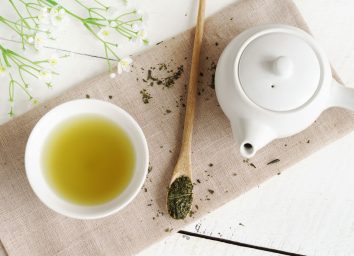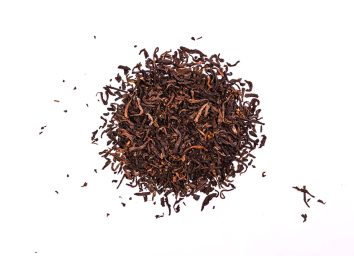The #1 Thing You're Doing Wrong When Making Tea, According to an Expert
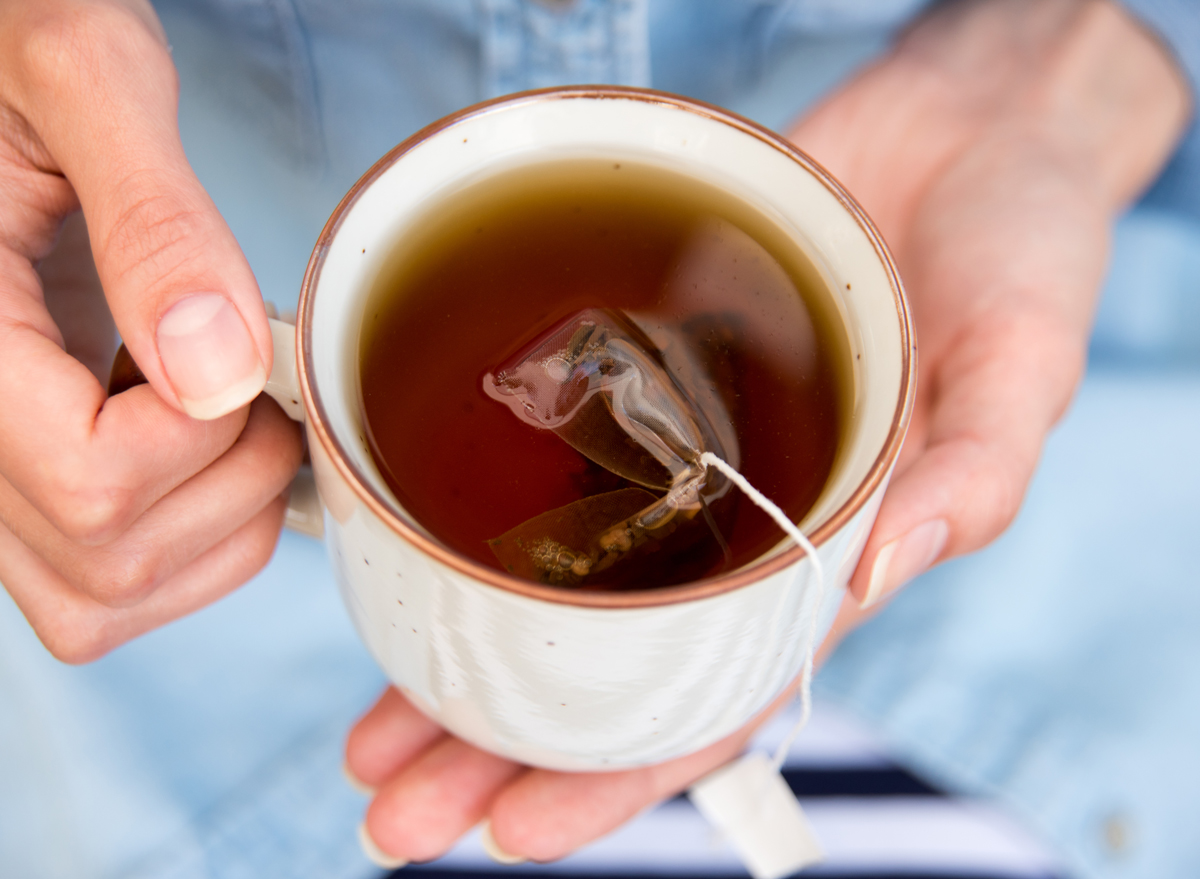
Tea is one of the most consumed beverages in the world, and for good reason. Not only is it a warming, caffienated beverage that can provide you with an extra boost of energy, but it's also teeming with other benefits such as supporting a healthy metabolism, reducing inflammation, and promoting weight loss.
While you'll be able to reap these benefits regardless of how you brew your cup, if you want to make the most of this beneficial elixir, it's important for you to make it the right way. Unfortunately, many of us are making an all-too-common mistake when making tea: using water that's too hot.
We spoke to David Segal, co-founder and CEO of Firebelly Tea—a specialty tea brand with a line of all-natural, pure tea and tea blends—and the namesake for DAVIDsTEA (which he also co-founded) to understand why you shouldn't use water that's too hot when brewing tea. Read on, and for more on how to eat healthy, don't miss The #1 Best Juice to Drive Every Day, Says Science.
Why is it bad to use boiling water when brewing a cup of tea?
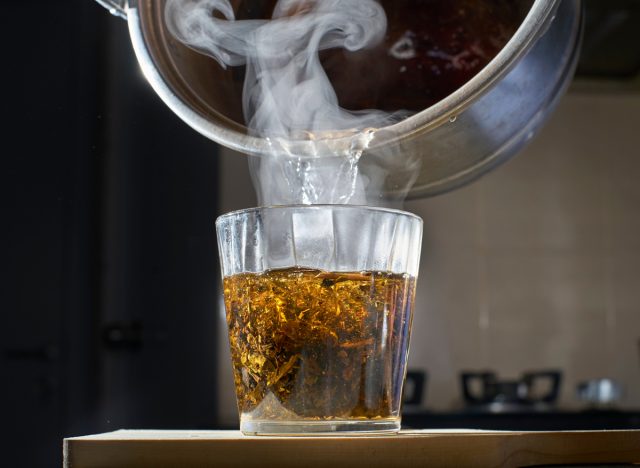
"While you can use hotter water for some teas, you absolutely never want to use water that is fresh off a rolling boil when making tea," says Segal.
If it's too hot to drink, it's too hot for your tea leaves. Tea leaves are delicate, and using extremely hot water can make their fragile compounds taste bitter and less sweet.
"In addition to providing flavor and functional benefits, the process of steeping tea extracts tannins from the tea leaves. Tannins are the polyphenols that supply those beneficial antioxidants typically associated with tea, but if too many are extracted—[which can happen when the water is too hot]—they're also associated with an astringent aftertaste that many people can find bitter," he says.
Flavor isn't the only thing that can go wrong when you use water that's too hot. Studies show that hot water can also destroy delicate, health-promoting compounds in tea like catechins.
What temperature should you use for the perfect cup of tea?
Depending on the type of tea you're drinking, your water should be at different temperatures to extract the optimal flavor from the leaves.
Segal provides the following guide:
- Black teas: 190-195 Fahrenheit (90 degrees Celsius)
- Oolong: 185 Fahrenheit (85 degrees Celsius)
- Green tea: 170-175 Fahrenheit (70-75 degrees Celsius)
"You want to use cooler water with green tea because the leaves are more delicate. Because green tea leaves haven't been fired like with black teas, as a result the tannis get extracted much quicker and easier," says Segal.
READ MORE: The #1 Best Green Tea to Drink, According to Experts
If you only have an electric kettle or pot, how can you tell when the water is cooled down enough?
No thermometer? No problem.
"I think it's fair to say that most people who are casual tea drinkers, or are dipping their toes into the world of tea — I am a big advocate for swapping out your 2 p.m. coffee with a cup of tea instead! — don't own temperature-controlled kettles. Thankfully, there are a couple of other, visual cues to look for to get the temperature right," says Segal.
"It is absolutely OK to bring the water to a full boil—just don't use it when it is so freshly boiled. Once the water comes to a good boil, go ahead and remove the lid off of your kettle. If you are using a pot, you don't need to cover it. Simply remove it from the stovetop and allow it to cool down a little. What you are looking for is the steam to settle down," he explains.
"Once there is no more wispy steam coming off the surface of the water, the water should be hot enough to steep, but no longer scalding to the point of impacting the flavor of the tea," he recommends.
The right amount of time to steep every type of tea
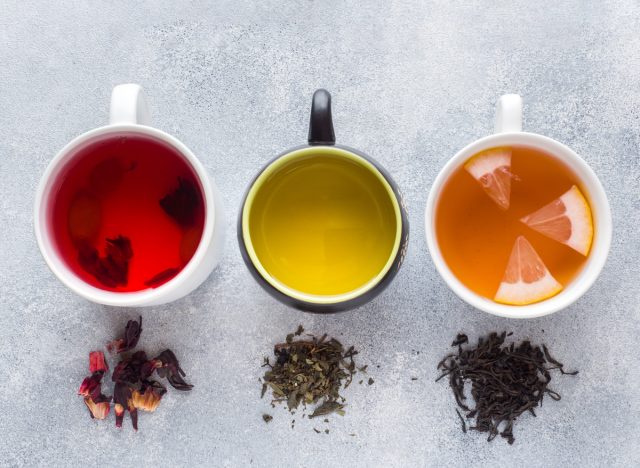
Temperature isn't the only thing that factors into the flavor of your tea; the amount of steeping time also matters.
Segal recommends the following:
- Black and oolong teas: 3-5 minutes.
- Herbal teas: 4-6 minutes. "You can steep for a little bit longer because there is usually no tannins or caffeine considerations so around," says Segal.
- Green teas: 2-3 minutes. "Green teas are more delicate because they are not as processed as say black tea as an example and so the tannins get extracted much easier and faster. If you steep them for too long, or your water is too hot, you will end up with a bitter, overcaffeinated cup," says Segal.
Looking for more flavor? Don't extend your steeping time. "It might be a natural thought to want to steep longer [for more flavor], but that is actually counterintuitive. Rather than steeping for a longer amount of time, you're much better off adding in more tea leaves to amplify the flavor," says Segal.
Now that you know how to brew the perfect cup, try out your new skills with one of our favorite green teas! Read more: We Tasted 10 Green Tea Brands & This Is the Best!

